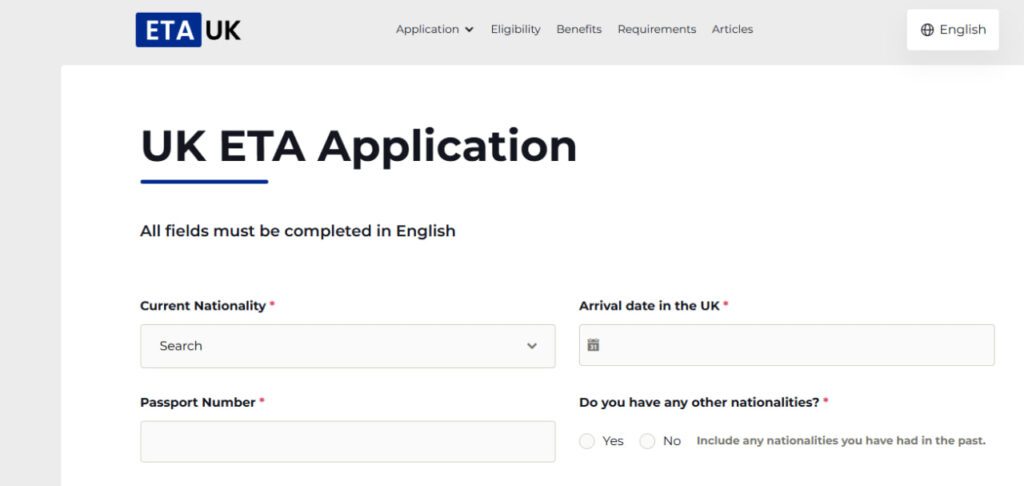Introduction
I often find myself marveling at how rapidly immigration regulations evolve, and right now, the UK’s proposed move toward a fully digital visa (eVisa) system by 2025 feels particularly seismic. At the very heart of this shift is what I see as a radical step into a new era of high-tech solutions aimed at streamlining the entire visa process. In my opinion, the UK eVisa Digital Switch stands as a bold endeavor, capturing both the promise of greater efficiency and the challenge of preserving a humane approach to immigration.
Key Takeaways
- Full Digital Transition by 2025: The UK plans to replace paper-based applications with streamlined eVisas, reflecting a broader global shift in immigration.
- Improved Efficiency: Online document submission and processing could drastically reduce waiting times and ease the application experience.
- Data Security Concerns: Cybersecurity measures and robust IT infrastructure are crucial for protecting sensitive personal information.
- Balancing Enforcement and Compassion: Technology offers benefits, but ensuring fairness and empathetic assessments remains essential.
A Historic Leap Toward Digitalization
Having kept a close eye on immigration policies for years, I am compelled to note that the United Kingdom—home to some of the oldest border control traditions—is now poised for a sweeping embrace of the digital realm. While certain countries have already adopted various forms of online visa processing, the UK’s plan to make eVisas the standard for foreign nationals by 2025 could set a new benchmark for modern immigration systems.
From what I gather, this shift transcends mere bureaucratic updates. It is, in essence, a reimagining of how visas are processed, validated, and monitored in real time. Rather than wading through a paper-laden approach, applicants could potentially benefit from a fluid, online structure where each step—from initial submission to final approval—is conveniently tracked and managed.
Promised Convenience for Migrants and Visitors
In my view, one of the most striking appeals of the UK eVisa Digital Switch is the promise of ease. Aspiring migrants and visitors alike may find relief in the idea that they no longer need multiple appointments or lengthy paper forms. Once the system fully launches, they might simply log in from anywhere, upload the necessary documents, and follow a streamlined checklist.
Yet, as with any major policy reform, I believe it is vital to weigh the trade-offs. A system designed for swiftness and accuracy often leaves little room for nuance. Automated checks could inadvertently flag legitimate applications or raise red flags due to minor data inconsistencies. This concern, in my opinion, underscores the need for a robust appeals process and real human oversight that ensures no one is unjustly excluded.
Data Security and Potential Technical Pitfalls
In an era where cyber threats loom large, the digital transition also demands rigorous data protection. For a system that seeks to hold sensitive information about thousands—if not millions—of people, security breaches are not just an IT inconvenience; they are a question of personal safety and, ultimately, national security.
I must also note that large-scale digital initiatives often suffer from initial hiccups, ranging from system crashes to incomplete data migration. If the government presses forward without thoroughly testing each phase, these pitfalls could result in severe consequences for both applicants and the broader immigration apparatus. Personally, I find it absolutely imperative that authorities invest in comprehensive pilot programs, staff training, and contingency plans to mitigate these risks.
Balancing Border Control and Humanitarian Values
One of the more delicate dimensions of this transformation, in my perspective, is how the UK will maintain its pledge to humane immigration policies amid stricter, technology-driven oversight. While advanced scanning and cross-checking tools can help root out fraud, they might also amplify scrutiny and lead to increased rejections.
I am forced to note that immigration isn’t just numbers on a screen—it is a tapestry of hopes, dreams, and real human stories. When a family applies for a visa to seek a better life, their application must be evaluated with fairness, empathy, and cultural awareness. It remains to be seen how effectively the government can embed these values into a digitally dominant system. Nonetheless, I believe the conscientious application of technology could bring more transparency and clarity, provided the human dimension stays front and center.
Long-Term Impact on Global Mobility
Looking ahead, I see the UK eVisa Digital Switch as part of a larger global narrative. Countries worldwide are modernizing their border controls and immigration procedures, from biometric passports to online travel authorizations. By committing to a 2025 deadline, the UK positions itself as a pioneer, signaling that the future of border management lies in seamless virtual processes.
From the perspective of travelers and potential migrants, this could mean quicker application times, real-time updates, and a smoother experience overall. However, the watchword here is balance. Technology should serve as an ally rather than a gatekeeper that leaves people behind.
Personal Reflections
I have always admired how the UK, with its rich cultural tapestry, brings together diverse backgrounds under one national roof. In my opinion, shifting fully to an eVisa system underscores Britain’s intent to stay modern and competitive, aligning with the digital transformations happening worldwide. Yet as with any great leap, caution and compassion are key. Ensuring that no individual is wrongly locked out, while preventing abuse of the system, is a delicate dance that requires both innovation and humanity.
Conclusion
All in all, the move toward a UK eVisa Digital Switch sets the stage for a new chapter in British immigration policy. On one hand, it holds the promise of efficiency, cutting-edge technology, and a more transparent process. On the other, it highlights the importance of human oversight and empathy. In my view, a successful outcome depends on finding that middle ground: championing efficiency without losing sight of the real people behind the screens.










